MedievalReporter.com
Covering history's most marvelous millennium
Join our newsletter!

Covering history's most marvelous millennium
Covering history's most marvelous millennium
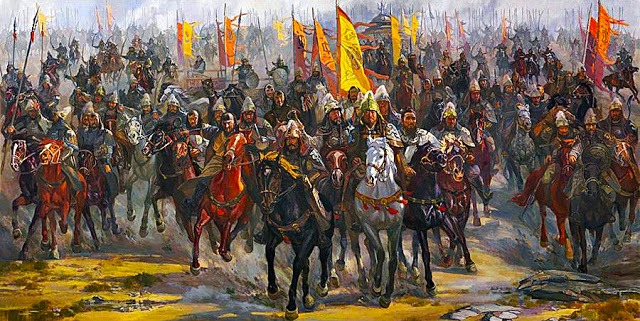
What drove the otherwise stern and respected Chinese general Zhang Xun to eat his own concubine? And why did Chinese historiography raise this commander-turned-cannibal to hero status? Well, as it happened, all was not well in the Chinese Empire of his day.
Grab a short intro to the Chinese from our Medieval Guidebook.
When Zhang Xun grew up in the 8th century CE, the great Tang Dynasty ruled a unified China. A high point in Chinese civilization, this was an empire of cosmopolitan grandeur. Meanwhile, imperial armies penetrated deep into Central Asia, subjugating the Turkic tribes living there.
The Tang era has consequently been dubbed one of China’s Golden Ages. Zhang Xun profited from this prosperity and stability by quickly rising through the ranks. He passed the famous imperial examination around his 30th birthday and served on the staff of the crown prince thereafter.
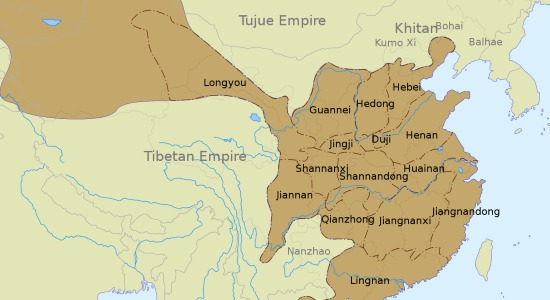
It was common for the imperial court to send promising administrators out to provinces and counties. There, they could accrue experience with local government. Zhang Xun was dispatched to Zhenyuan County to take care of affairs.
Although he had been a bureaucrat so far, Zhang Xun was known for his interest in strategic military matters. The strict discipline of the army had appealed to him from a young age. He was determined to bring this harsh-but-just style of government to the county he had been allocated to.
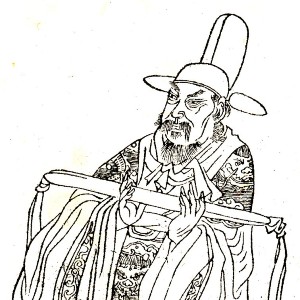
At that time, a few corrupt clans dominated Zhenyuan County. Their most senior leader ruled like the emperor himself, just on a more local scale. Sparing no time, Zhang Xun summoned this leader upon entering the county and had him promptly executed.
For Zhang Xun, there was only one loyalty: to the emperor. He would display it many times over.
– advertisement –
– article continues below –
In 755, when Zhang Xun was in the prime of his life, the Tang Golden Age was shattered. A great revolt broke out that shook China to its very core. Rebellious general An Lushan declared a rivaling Yan Dynasty.
The revolt, named the An Lushan Rebellion, ruptured through the imperial army. Many generals betrayed the Tang Dynasty and went over to An Lushan’s side. Zhang Xun’s superior turned traitor, too, and asked him to prepare a welcome delegation for one of An Lushan’s generals, who was already underway to their region to assemble soldiers.
Zhang Xun prepared the military delegation, but – unwavering in his loyalty to the Tang Dynasty – led them to a temple of Lao Tzu, the founder of Taoism. The Tang emperors had always officially claimed to be descended from him, so taoist temples were pillars of Tang support.
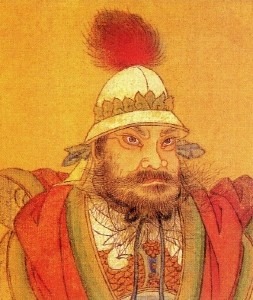
Inside the temple, Zhang Xun moved his host to tears. Lamenting the An Lushan Rebellion, everybody present inside the temple pledged support to the Tang regime. Zhenyuan County was not going to join An Lushan’s side without a fight.
Completely disobeying his senior commander, Zhang Xun assembled a fighting force of 1,000 men and marched to meet the An Lushan rebels head-on. He entered the city of Yongqiu and wrote to the imperial court to be granted official command of the region. The emperor promptly accepted and sent another 2,000 men his way to halt An Lushan’s advance.
Zhang Xun and his men dug in at Yongqiu and waited for the wrath of An Lushan that would surely soon descend upon their stubborn heads.
The fortress of Yongqiu was of great strategic importance. The An Lushan Rebellion had broken out in the north. Located in the center of the country, Zhang Xun turned Yongqiu into an obstacle for rebel forces moving south.
As more and more generals thought of the Tang Dynasty as a lost cause, the rebel army numbered over 160,000 soldiers by now. An Lushan dispatched 15,000 of them to evict Zhang Xun from Yongqiu. Although they greatly outnumbered the Tang loyalist forces inside the city, they were firmly beaten and lost over 10,000 men.
A month later, the rebel army tried again. This time, An Lushan sent one of his most senior generals and 40,000 soldiers against Zhang Xun. The general personally asked Zhang Xun to surrender, to which he replied:
“For your whole life, you have been known for your loyalty. Where is your loyalty now?”
—Zhang Xun addressing the An Lushan rebels.
Obviously, the siege of Yongqiu was going to see another round. An Lushan’s general tried to take the city by storm and assaulted with siege ladders. Zhang Xun set them on fire and many rebel soldiers burned and fell to their deaths.
They refused to directly assault the city walls again, after which their general – actually wanting to score a quick success after the costly defeat of the previous month – grudgingly agreed to surround the city and starve it of supplies.
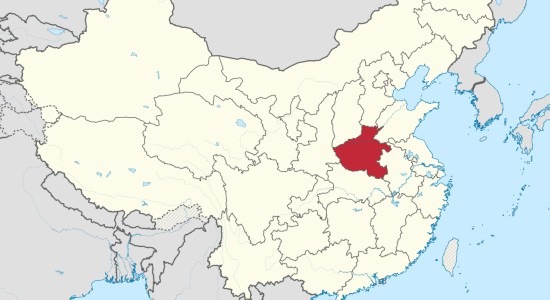
Zhang Xun was not planning on dying of thirst and hunger. As soon as he was surrounded, he let his men play the war drums every night, indicating he wanted to launch a nocturnal counterattack. The rebel soldiers stayed awake and remained on guard.
But the attack never came. As the nights passed, the rebel army grew literally tired of the drums and let their guard down. Mercilessly playing his opponent, Zhang Xun sallied forth one night and his Tang forces slaughtered many of An Lushan’s men in their tents.
Responding in kind, the rebel general decided to play a trick of his own. He snuck a rumor into the headstrong city that the imperial capital had fallen. Panic engulfed the Tang soldiers and during an emergency meeting, six captains asked Zhang Xun to surrender.
Zhang Xun said he would sleep on it and ordered everyone to return to their quarters. The next morning, he installed a huge portrait of the Tang emperor and lined up all his men in front of it. Calling forth the six captains, he ruthlessly beheaded them in front of everybody – with the image of the emperor looking down on them.
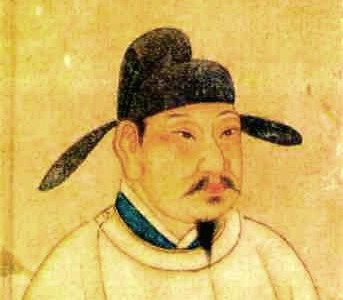
Having boosted his army’s morale, Zhang Xun’s food stores now began to run out. After a few weeks, he negotiated a deal with An Lushan’s forces: the rebels would retreat for a few hours so that the Tang forces could safely leave and yield the city. Delirious that they would no longer have to fight this stubborn general, the rebels walked away for a few kilometers.
Never contemplating true surrender, Zhang Xun exited the city but instead of leaving, simply robbed the entire rebel camp of food and went back inside laden with plunder.
Yongqiu would not fall on his watch.
The morale of the rebels reached an all-time low. Zhang Xun’s tricks drove An Lushan’s general to desperation. He broke up the siege and retreated with less than 20,000 men, having lost over half his forces.
In the grand scheme of things, the Tang army was still losing the war. The next year, an army of over 130,000 rebels threatened the city of Suiyang. By now famous for being able to defend against all odds, Zhang Xun was dispatched to lead the defense of the city.
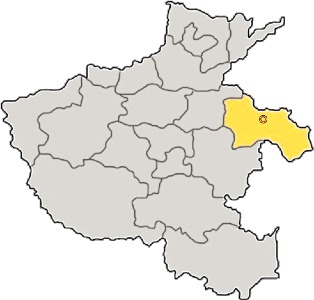
It was here that he experienced his darkest hour. Although he did indeed manage to thwart all attacks by the rebels despite their overwhelming numbers, the supply situation in Suiyang was worse than it had been at Yongqiu. Before long, Zhang Xun’s men were eating tree bark, tea leaves and paper.
His subordinates, deciding that death by decapitation might be better than dying of starvation, once more asked him to surrender. Zhang Xun, not totally oblivious to the dire situation they were in, decided that his soldiers needed another show of strength this time.
Determined to demonstrate that he was prepared to sacrifice everything for the Tang cause, he proceeded with an act that both inspired and shocked his forces. Zhang Xun killed, cooked and ate his beloved concubine, who he had brought with him to Suiyang.
– advertisement –
– article continues below –
His soldiers were revulsed by this act of cannibalism, but they were hungry as well. They soon killed and ate their servants, too. The Tang army went to great lengths to hold on to the city.
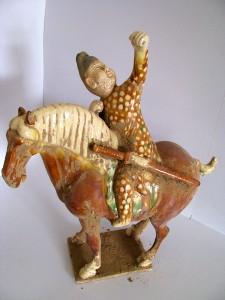
But in the end, there were no more people to eat. Suiyang fell to the rebels and Zhang Xun was captured in the process. The general leading the assault, who Zhang Xun had tormented for so long, contemplated saving his adversary out of respect for his military genius.
But the rebel leadership feared he would inspire a mutiny by his unfaltering loyalty to the Tang regime. So, in 757, after two years of fighting the An Lushan Rebellion with everything at his disposal, Zhang Xun and over 30 of his officers were executed.
Ultimately, the Tang regime overcame the rebellion and ruled China for more than a century afterward. The Tang emperor honored a great number of generals who had died for his cause. However, what to do with the legacy of Zhang Xun immediately became an issue of great controversy at the Tang court.
Criticism surfaced regarding his despicable cannibalistic behavior. Nevertheless, one of Zhang Xun’s best friends wrote an exalting biography of him. Its main point was that the Tang cause would have been lost were it not for his staunch defense of both Yongqiu and Suiyang.
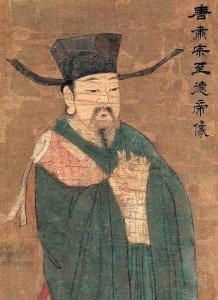
Eventually, the emperor agreed with this point of view. He greatly rewarded Zhang Xun’s family and dedicated a temple to him at Suiyang, the city that had cost him his life. The general who had eaten his own girlfriend was officially turned into a Chinese hero.
Disclosure: we work hard to provide you with exclusive medieval reports and guides. To make the Middle Ages accessible to everybody, we’d like this information to remain FREE. Therefore, some of the links below are affiliate links, meaning – at no additional cost to you – we will earn a small compensation if you click through.
Featured Image Credit: SupChina